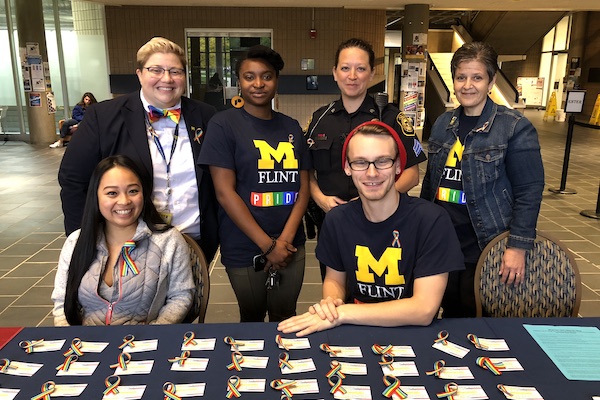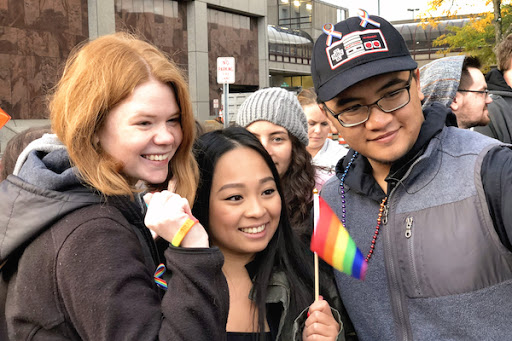LGBT History Month at UM-Flint

Our Center for Gender and Sexuality has created a month of programming for LGBT History Month. Celebrate with us!
ALLY 101: BEING A RELIABLE ALLY
October 7
Noon • Tuscola Rooms, WSW
ally/"al-lie"/ –noun: person who is not a member of a marginalized or mistreated group but who expresses or gives support to that group
Come learn strategies to serve as a good ally and have lunch on us!
COMING OUT CELEBRATION!
October 9
LGBTQ Rights in the Workplace
Noon • 213 UCEN
The Supreme Court of the United States will hear arguments on October 8, 2019, to decide whether federal employment-discrimination laws apply to LGBT employees. We will review the issues in the three cases being argued before the court, talk about how the court may rule, and discuss the implications of their decision. Join us for lunch to learn about the rights of LGBT employees in the workplace.
Tell Your Story
5 p.m. • Kiva, UCEN
In Celebration of National Coming Out Day (which is actually on October 11), we will build on the UM-Flint tradition of having an event where students, faculty, staff, and community members will gather to share coming out stories and stories of allyship. The event will culminate with UM-Flint Alum Debra McGee sharing what it was like to be at Stonewall 50 years ago on the night of the riots that signifies the starting point of the LGBT Civil Rights Movement.
After the event and before the movie, food will be served.

CGS Documentary Film Series:
Before Stonewall
7 p.m. • Kiva, UCEN
After hearing from Debra McGee we will screen the documentary Before Stonewall to investigate the national cultural perceptions of homosexuality before the event, looking back on previous decades, particularly in regard to conflicts with police and censorship. The film features interviews with activists and scholars.
INTERNATIONAL PRONOUNS DAY
October 16
8:30 a.m. – 5 p.m. • 213 UCEN
International Pronouns Day seeks to make respecting, sharing, and educating about personal pronouns commonplace. Referring to people by the pronouns they determine for themselves is basic to human dignity. Being referred to by the wrong pronouns particularly affects transgender and gender-nonconforming people. Together, we can transform society to celebrate people's multiple, intersecting identities. Stop by the CGS to pick up or make your own button and to learn more.
All programs are free and open to the public.
Related Posts
No related photos.
UM-Flint News
The Office of Marketing & Communications can be reached at mac-flint@umich.edu.